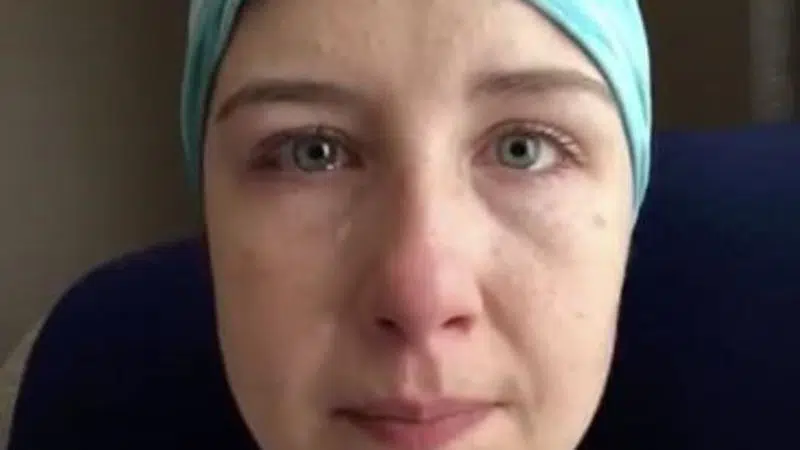
Can’t ignore frustrated patient’s ‘heartbreaking’ video, doctors group says
HALIFAX — A viral video made by a frustrated young Nova Scotia mother who says she waited two years for her cancer diagnosis can’t be ignored, says the president of the Canadian Medical Association.
Dr. Gigi Osler called the situation described by 33-year-old Inez Rudderham “heartbreaking.”
“We have to pay attention to it because I think it is a sign of the challenges our health care system is facing right now,” Osler said in an interview Friday.


